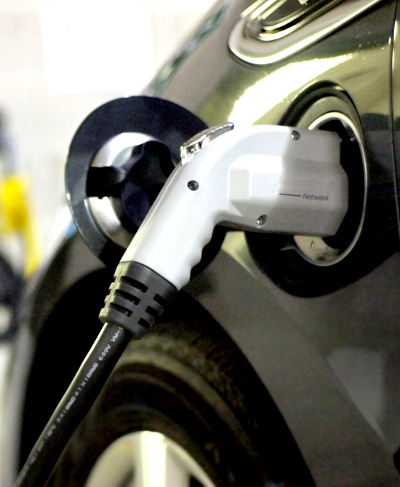EV highway heads west
 Queensland is extending its electric vehicle charging network into remote areas.
Queensland is extending its electric vehicle charging network into remote areas.
Queensland Transport Minister Mark Bailey says phase three of Queensland's Electric Super Highway is rolling out, with the first of 24 new charging stations to be completed in Kingaroy next month.
“Then we'll see others in places like Longreach, all the way along the Flinders Highway out to Mount Isa, all the way along the Capricorn through Barcaldine, Longreach, Winton,” he said.
‘We'll see Cunnamulla, we'll see Blackall, we'll see Emerald, we'll see Dingo, all these different places over the next 12 months will have an electric vehicle charging station.”
Charging stations are already fairly available up the east coast from Coolangatta to Cairns.
“That's such a really exciting thing to see such a vast state like Queensland being able to cover electric vehicles,” Mr Bailey said.
The state recently reached a milestone of 10,000 registered electric vehicles, a number that has almost doubled in the last five years.
The number of EVs on QLD roads is expected to rise with the state government's $3,000 rebate on six eligible models.
Energy Minister Mick de Brenni said Queensland's EV rebate is about offering Queenslanders a choice.
“Motorists are seeing the rising costs of liquid fuels and global supply challenges mean it's more important than ever to give that choice to switch to an electric vehicle,” he says.
Rising petrol prices are fuelling a move to EVs, with estimates from the the Electric Vehicle Council suggesting charging EVs cost less than a third of the fuel costs of a standard petrol-fuelled vehicle.
The ACT government this week named a date for the end of sales of new fossil fuel-burning cars in the territory, with a ban set to begin in 2035. More details about the plan should emerge when the ACT releases its complete ACT Zero Emissions Vehicles Strategy 2022-2030 this week.
The Australian Automotive Dealer Association (AADA) says the government is locking Canberrans into a commitment “at a time where we really don't know what the future holds”.
The AADA is concerned that the cost of electric vehicles will not be low enough when the ban is introduced in 2035.
“We know that electric vehicles are more expensive, and we hope that will change in the future, but what we're seeing at the moment is that electric vehicles are not becoming cheaper,” AADA chief James Voortman says.
“Critical minerals that are needed to manufacture these cars are scarce and they need to ramp up the mining of those minerals — such as lithium and cobalt — to ensure the price point that we need does emerge.”
He suggested the shift should be left up to market forces.
“These vehicles might become irrelevant, [so] why ban them? If we are seeing the consumer uptake which we are of hybrids at the moment, I am sure that will translate to electric vehicles,” he said.
“If they are affordable and available en masse, people will buy them.
“I don't think a ban is the right way to do this. We are really locking ourselves in at a time where we really don't know what the future holds.”








 Print
Print